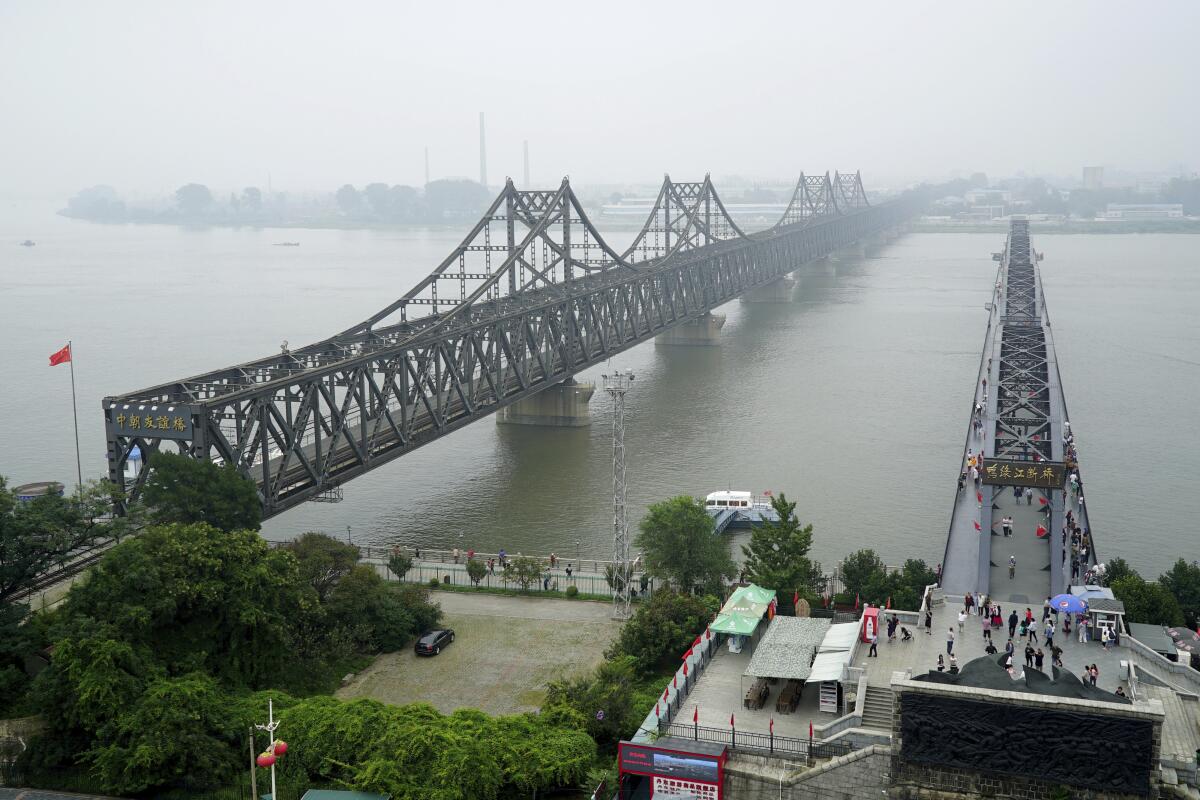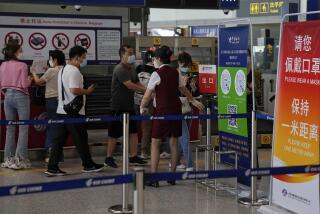China halts freight train traffic with North Korea, citing spread of coronavirus

- Share via
BEIJING — China says it halted railroad freight traffic with North Korea as it deals with the spread of the coronavirus in the border town of Dandong.
The countries had reopened trade between Dandong and North Korea’s Sinuiju in January after a two-year pause while the North imposed one of the world’s most restrictive pandemic border closures despite the strain on its broken economy.
Chinese Foreign Ministry spokesperson Zhao Lijian said Friday the decision to suspend the freight services was taken “in light of the current epidemic situation in Dandong,” but he gave no other details.
The Dandong city government on Monday ordered all residents to swiftly return home and stay there to stem the spread of the virus. It said the government would make strenuous efforts to ensure the daily needs of residents but made no mention of links with North Korea and did not say when the lockdown would be lifted.
While many countries are dropping restrictions and trying to live with the virus, China has been sticking to a “zero-COVID” approach, which requires mass testing and lockdowns and keeping its international borders largely shut.
North Korea’s decision to tentatively reopen cross-border trade with China, its main ally and economic lifeline, possibly reflected a growing urgency in its need for outside relief.
North Korea still claims to have a perfect record in keeping out COVID-19 from its territory — a claim widely doubted. But the closure of its border to nearly all trade and visitors for two years further shocked an economy already damaged by decades of mismanagement and crippling U.S.-led sanctions over its nuclear weapons and missile program.
Experts say the North would have focused on importing fertilizers to boost food production, factory goods to spur dismal industrial production, and construction materials to support ambitious development projects that leader Kim Jong Un touts as major accomplishments.
The North has been accelerating its weapons tests in recent months, including its first test of an intercontinental ballistic missile since 2017 in March, as it revives brinkmanship to pressure the United States to accept it as a nuclear power and remove sanctions.
South Korea’s Unification Ministry, which deals with inter-Korean affairs, didn’t immediately provide more details on the suspension of freight traffic between North Korea and China.
More to Read
Sign up for Essential California
The most important California stories and recommendations in your inbox every morning.
You may occasionally receive promotional content from the Los Angeles Times.













